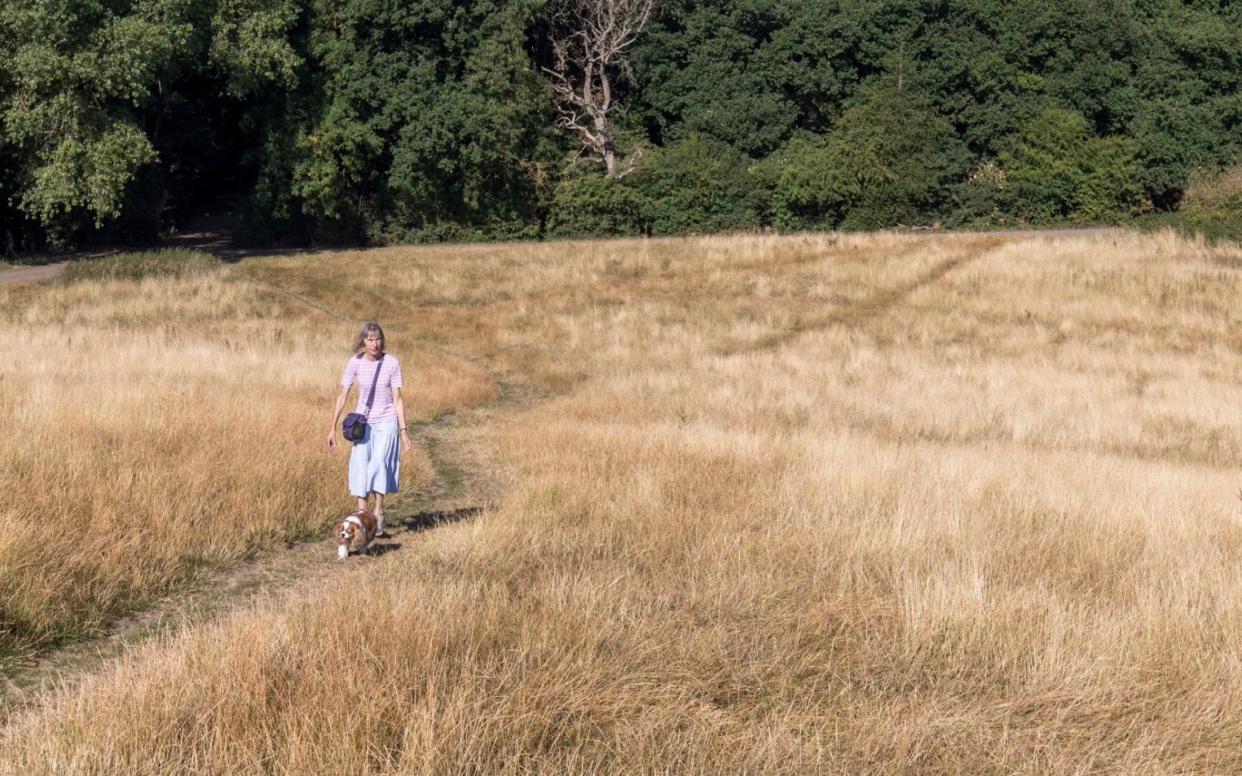Driest year since 1976 for millions with hosepipe bans expected until October

It has been the driest year since 1976 across swathes of the country, statistics have shown, with hosepipe bans expected to last until October.
South-east England has had 144 days with little or no rain - the most in nearly half a century, according to Met Office figures.
The second heat health alert of the summer has been issued for southern and central England from 6pm on Tuesday into the weekend, with temperatures expected to rise into the mid-30Cs in central and southern parts of the country.
Plenty of warm weather is forecasted this week, but why is it so hot and how long will it last ?
Here is Alex with more information 👇 pic.twitter.com/HTNrsUwgbt— Met Office (@metoffice) August 8, 2022
The UK Health Security Agency has told people to check on friends and family, adding that those most vulnerable should keep out of the sun between 11am to 3pm and stay hydrated.
Millions of people in the South East are already facing restrictions on using hosepipes and sprinklers in their gardens, or turning on water features.
According to modelling released by Southern Water, thousands of households could remain under restrictions until October as the company waits for river levels to return.
One industry source defended the move by insisting people were less likely to need their hosepipes in the autumn.
Ministers are poised to declare an official drought this week ahead of a meeting on Friday between representatives from the Government, water companies and farmers.
Most of England is currently in prolonged dry weather status, one step away from an official drought.
Declaring a drought would put pressure on water companies in the south to bring in hosepipe bans, despite some insisting the restrictions will not be needed.
Thousands more will come under restrictions introduced by South East Water this Friday, while Welsh Water will introduce one for Pembrokeshire and Carmarthenshire from Aug 19.
Others including Anglian Water, South West Water and Thames Water have all said they are considering further restrictions.
George Eustice, the Environment Secretary, has called for other water companies to “take responsible action” by bringing in further restrictions.
However, Bristol Water, Portsmouth Water and Affinity Water have all said their supplies mean that hosepipe bans will not be necessary for their customers this year.
Bristol Water said it does not “anticipate the need for any hosepipe bans or water supply restrictions in 2022 due to our current reservoir storage and demand levels”.
A spokesman added that the company would “respond to whatever the Government challenges us to do”.
Water industry sources suggested it would be difficult for companies to ignore pressure from the Government to bring in further restrictions, even if water supplies remain reliable.
Water companies will be relying on neighbours to report each other over hosepipe ban violations, which could lead to £1,000 fines.
But new research by Ipsos showed only three in 10 Britons are likely to inform local authorities or water providers if they spot someone flouting the rules. Around half, 49 per cent, said they would be unlikely to do so.
A drought permit sought by Southern Water to extract more water from the River Test will apply for six months, or until flow in the river returns to 500 megalitres a day for 21 days.
Modelling by the company suggests this could happen as early as October, although it is understood the restrictions would be effectively lifted if there is sufficient rain.
The dry weather has led to increased calls for a ban on disposable barbecues, over fears they could lead to wildfires. Retailers have been urged to follow the lead of Marks & Spencer, which announced it would stop selling them across the UK this summer.
The Met Office's fire severity index will reach “exceptional” for a swathe of England by the weekend.
Tony Wardle, the Met Office's deputy chief meteorologist, said: “Heatwave criteria look likely to be met for large areas of the UK later this week, with the hottest areas expected in central and southern England and Wales on Friday and Saturday.
“Temperatures could peak at 35C, or even an isolated 36C on Saturday.
“Elsewhere will see temperatures widely into the high 20Cs and low 30Cs later this week, as temperatures build day on day through the week due to an area of high pressure extending over much of the UK.
“Coupled with the high daytime temperatures will be continued warm nights, with the mercury expected to drop to only around low 20Cs for some areas in the South.”
The little rain that is forecast is expected to only hit the North West, where there will be scattered showers.
An Environment Agency spokesman said: “The prolonged dry weather we continue to experience this year has led to exceptionally low river flows and reservoir levels falling across much of England. As we saw in July, extreme temperatures increase the likelihood of local impacts and put pressure on the water environment and wildlife.
“The Environment Agency is working in partnership with stakeholders to coordinate actions through the National Drought Group. Water companies are enacting their drought plans and taking further precautionary measures like temporary use bans, such as those introduced by Southern Water and South East Water to maintain water supply.
“We can all do our part to use water wisely, reduce our usage and manage this precious resource.”
The figure of 144 days compares with 166 days in 1976, when the heatwave brought a level three severe drought - with water companies allowed to place standpipes in the street.

